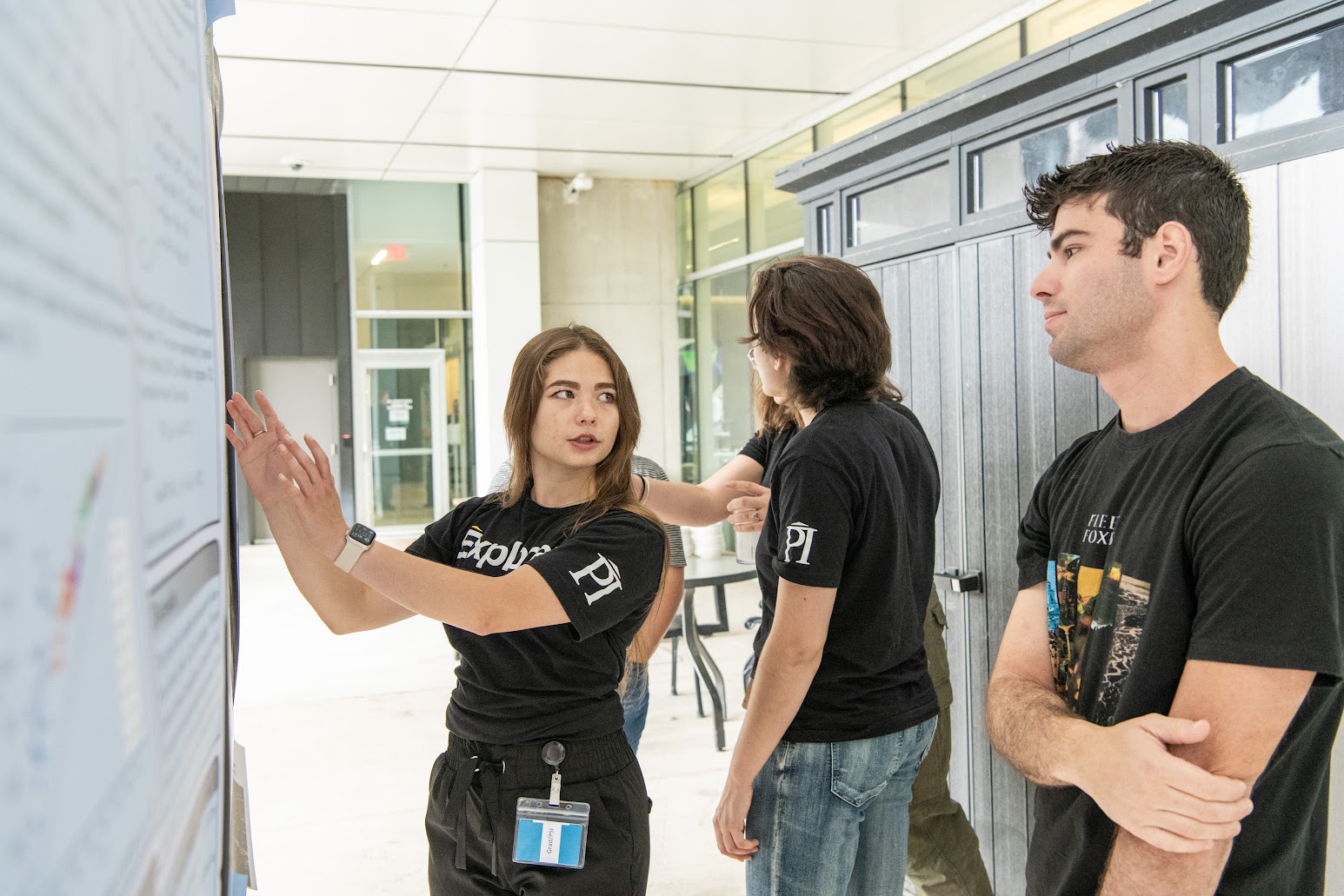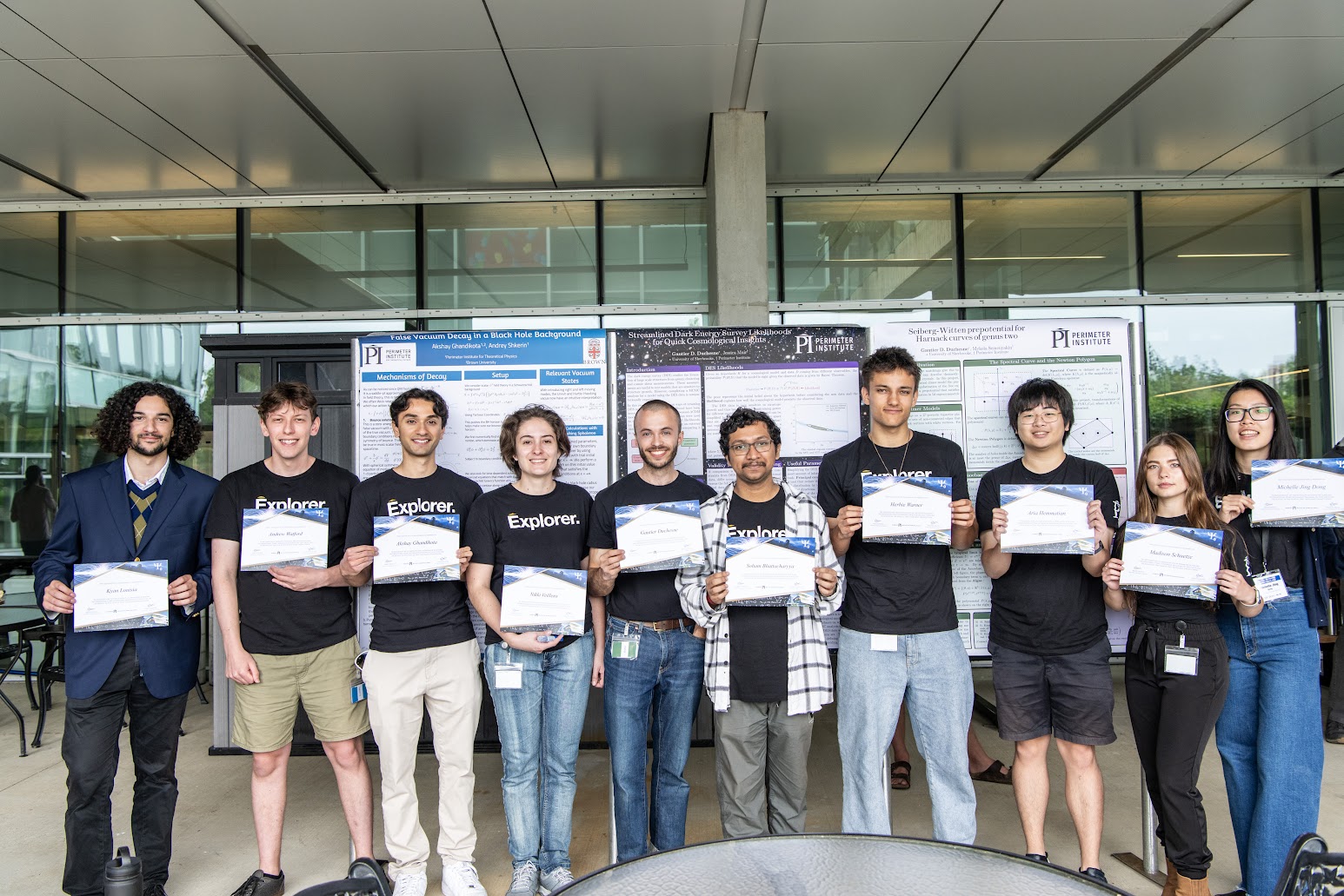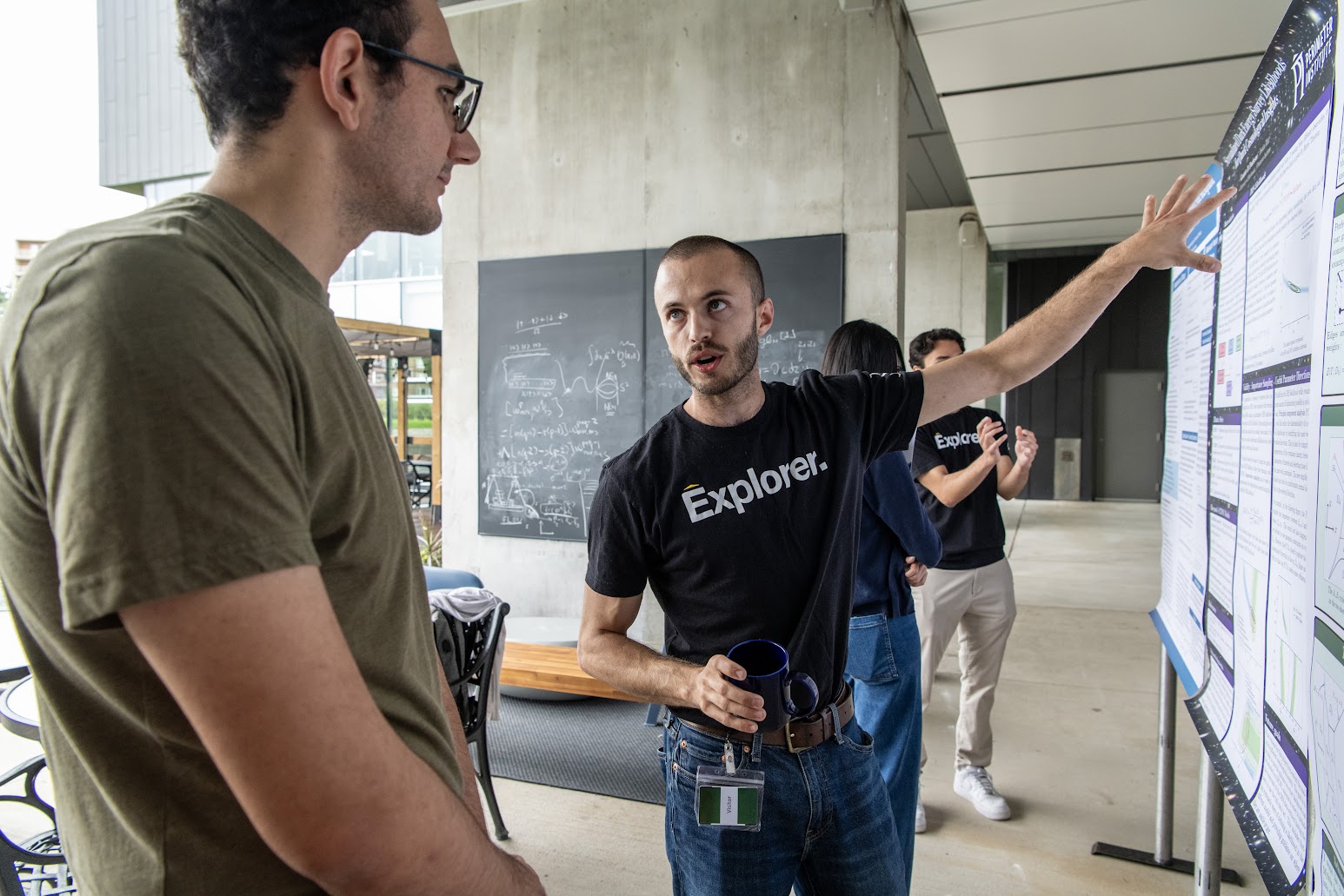Making the leap into grad school is no mean feat. It means transitioning from student to scientist, learning to think like a researcher, and finally applying the fundamentals you’ve studied for so long.
The PSI Start program at Perimeter Institute for Theoretical Physics makes that transition easier.
Each spring more than 40 students participate in Perimeter’s 10-week online school, a crash course in physics for undergrad students wanting a leg up when they begin grad school. Of those 40, a lucky 10 are selected for the PSI Start Internships, where students come in-person to work alongside leading scientists on real problems in theoretical physics.
“I remember sitting with my family outside this building and saying: ‘Wow, if I ever get to work here, I will be the luckiest person ever,’” says Madison Schuetze, one of this year’s PSI Start interns.
But it’s not just luck that got her here. Schuetze has long been motivated to challenge herself, test new concepts, and solve problems. PSI Start was a perfect fit for her.
“Working at Perimeter Institute, I got to learn about new fields of physics, such as quantum gravity, string theory, and holography. I got to speak with physicists in the field first-hand. This has really opened up my horizons.”
Guided by their supervisors, interns hone their skills and tackle big problems.
Herbie Warner, one of Schuetze’s colleagues, remembers his first day:
“I was jetlagged, but I became instantly excited during my first meeting with my supervisor. We introduced ourselves, and then he said: ‘Okay, well, there's a lot of prerequisites for what we're about to do, based on string theory and whatnot.’ And I said, ‘Well, I've got time, so teach me!’ So we sat there for four hours, and it was my first day here!”
“I was in awe the whole time,” Warner continues, “trying to decipher what he was talking about, but also thinking about how on Earth I was going to be able to reproduce all of this stuff. But when you have someone really passionate explain something you’ve never been exposed to before, you fall instantly in love with the whole thing. I was sitting there and clocking in my head, ‘I am about to do this for three months!’ It was an amazing feeling.”
Warner originally intended to go to art school as a pianist, but he found performing as a career less enjoyable than doing so for fun. So he turned to physics instead, and PSI Start gave him the chance to dive deeper than he ever had before.
To students considering applying to PSI Start, Warner says, “I cannot stress enough how brilliant of a program this is. You get to do amazing research with some of the world's best, and just being here, amongst those types of people, and interacting with them, is life-changing.”
Gautier Duchesne, another of this year’s interns, is currently completing an undergraduate degree at the University of Sherbrooke. PSI Start, he says, completely immerses him in his studies.
“It’s just me and my physics. It’s great.”
He observes that even the building itself seems to encourage ideation.
“It looks like this place is designed to think. There are all these nooks and crannies that are closed, but not really closed, so people can interact with you. But you can also be in your own space. There are blackboards everywhere. I don't think there's anywhere else in the world that is quite like this.”
But above all, it was the bonds Duchesne formed with his fellow interns that made the program exceptional.
“Everyone's super interested in trying new stuff. It's almost like a summer camp but for adults. It’s great being around people and having fun with them, and still being able to share really technical details about your work, and help each other understand it,” he says.
Schuetze agrees.
“In this program, you make such great friends. The people are absolutely fantastic. And it really gives you a great environment to grow. I feel like all the friends that I've met here, the other interns, will be lifelong friends. I feel like they're my family.”
PSI Start is a rigorous, competitive program. It is also a highly rewarding one. And the people who come out the other side, like Schuetze, Warner, and Duchesne, find themselves ready to take on the world – and the biggest questions in theoretical physics.
Further exploration
About PI
Perimeter Institute is the world’s largest research hub devoted to theoretical physics. The independent Institute was founded in 1999 to foster breakthroughs in the fundamental understanding of our universe, from the smallest particles to the entire cosmos. Research at Perimeter is motivated by the understanding that fundamental science advances human knowledge and catalyzes innovation, and that today’s theoretical physics is tomorrow’s technology. Located in the Region of Waterloo, the not-for-profit Institute is a unique public-private endeavour, including the Governments of Ontario and Canada, that enables cutting-edge research, trains the next generation of scientific pioneers, and shares the power of physics through award-winning educational outreach and public engagement.



